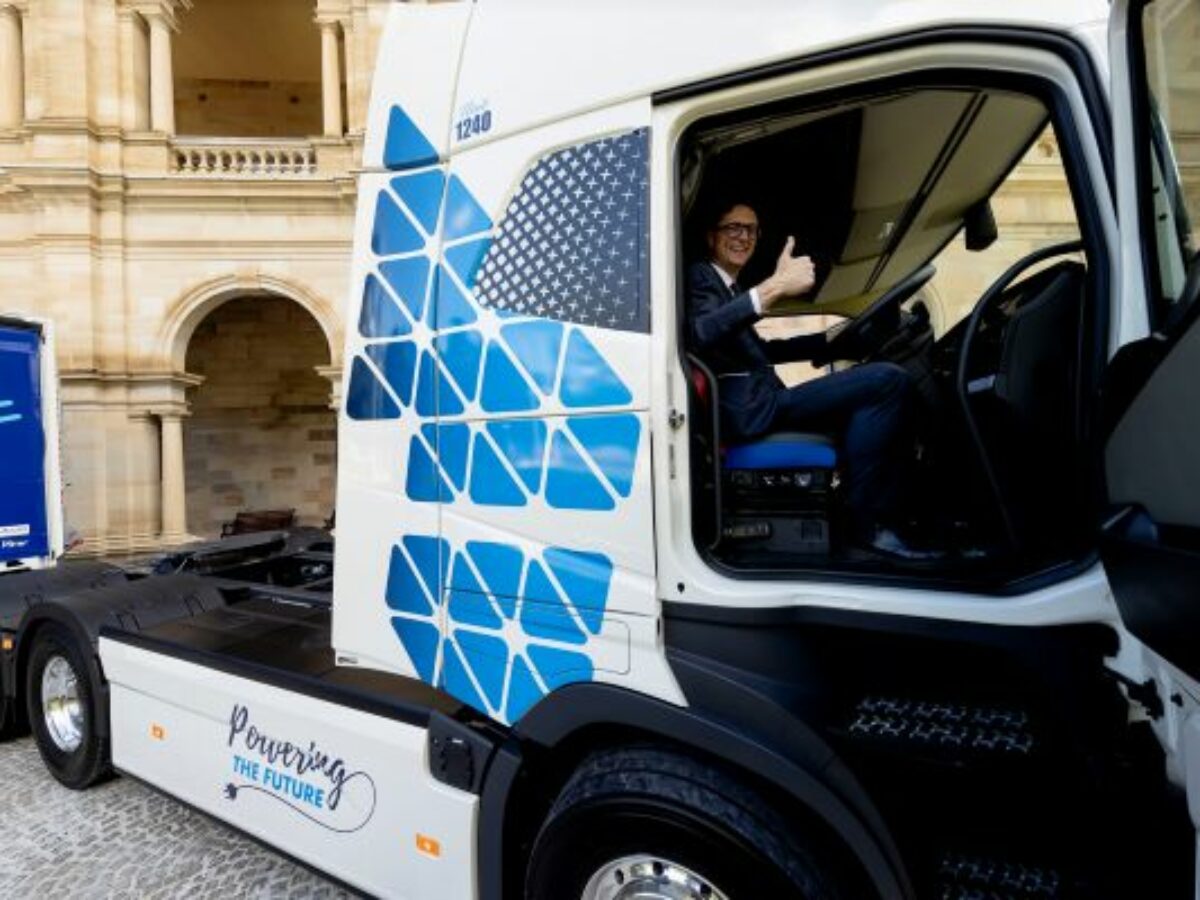Volvo and Queensland green light building electric trucks in Queensland

Volvo trucks has announced it ‘can now be made reality' for the company to manufacture battery electric trucks at its facility in Wacol, Queensland.
The announcement came as the Queensland government released a Zero Emission Heavy Vehicle Network Map (State-Controlled Roads) where battery electric vehicles may travel in future as Australia decarbonises.
Queensland is the fourth state to allow big electric trucks to travel on its roads.
President, and CEO of Volvo Group Australia Martin Merrick said: “I’d like to thank Minister Mellish, Minister de Brenni, Queensland TMR and the NHVR for their support and hard work in bringing this regulatory shift into reality.
”This announcement will allow the full range of Volvo’s electric heavy vehicles to operate on Queensland roads, which is a major win for the people of Queensland.
“We now also have the green light to invest even further in Queensland manufacturing. Last year I announced our intention to build battery electric trucks at our Wacol manufacturing facility, today I can confirm that intention can now be made reality.”
Releasing the network map the state government said it encourages the use of low and zero emission transport technologies to reduce greenhouse gas emissions and mitigate adverse impacts on the environment throughout their lifecycle.
Part of its aim is to encourage electric vehicle manufacturing in Queensland by undertaking regulatory reform.
The Transport and Main Roads Minister Bart Mellish said: “This announcement will put Queensland on the map as a leader in future electric truck manufacturing.
“As transport is one of the main contributors to Queensland's emissions Zero Emission Heavy Vehicles can make a significant contribution to meeting Queensland's targets to reduce emissions by 30% below 2005 levels by 2030 and achieving net zero emissions by 2050.”
The government said it was taking an evidence-based approach for the heavy vehicle industry in the adoption of Zero Emission Heavy Vehicles.
“Part of this is to undertake research into what the additional mass of these vehicles might have on our road infrastructure but at the same acknowledging that ZEHVs are an existing part of future energy transition.
“An important part of the government’s considerations has been to identify which parts of the road network could best accommodate these vehicles and facilitate access to essential supply chain linkages.”
The Zero Emission Heavy Vehicle Network Map (State-Controlled Roads) is focused on selected state-controlled roads in the South-East Queensland corner of the state where industry has told us initial demand will be highest, extending from the New South Wales border at the Gold Coast to Bundaberg and as far west as Toowoomba and Warwick.
The Minister Minister for Energy, and Clean Economy Jobs Mick de Brenni said: “I know all Queenslanders will welcome a future of locally manufactured electric trucks, because it means a creating a lasting legacy for the Australian vehicle manufacturing industry.”
Picture: supplied
@aumanufacturing Sections
Analysis and Commentary Awards casino reviews Defence Gambling Manufacturing News Online Casino Podcast Technology Videos





